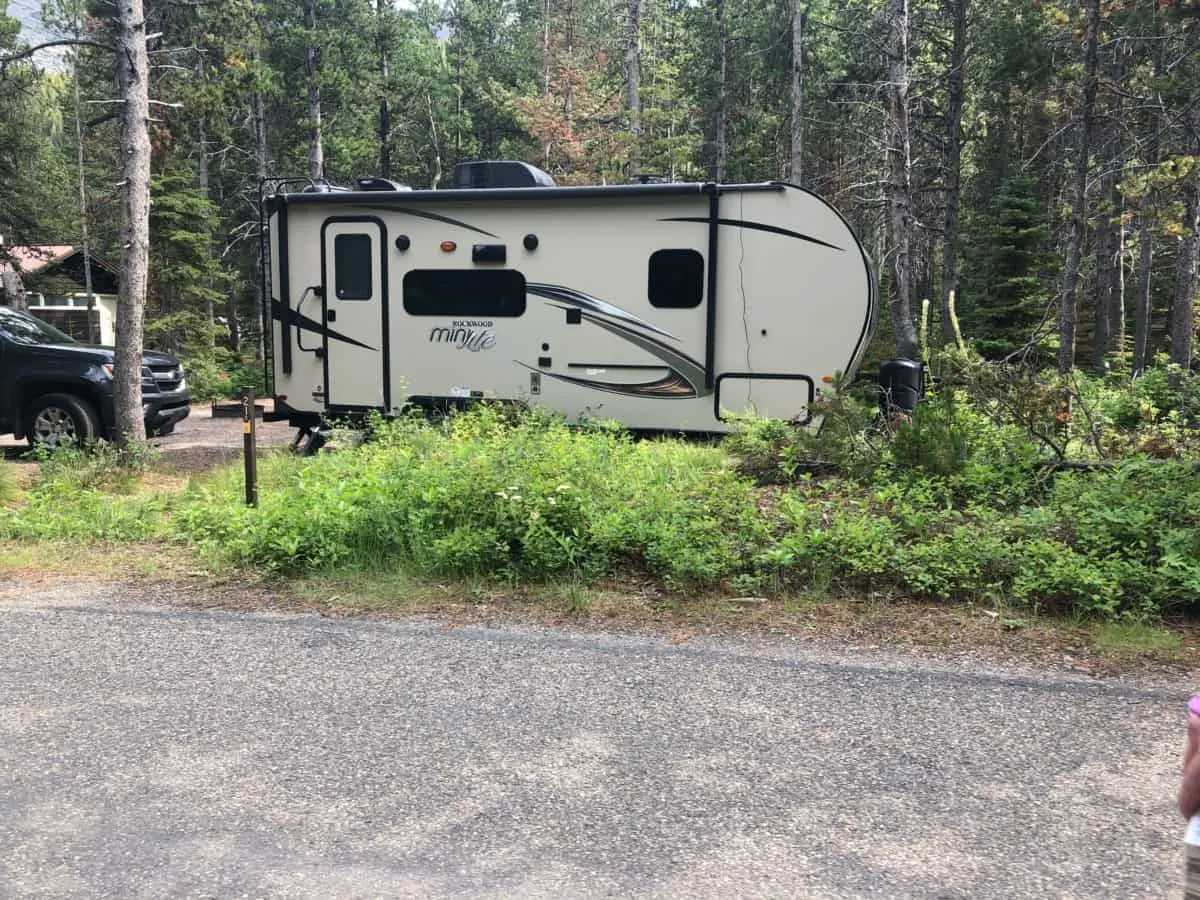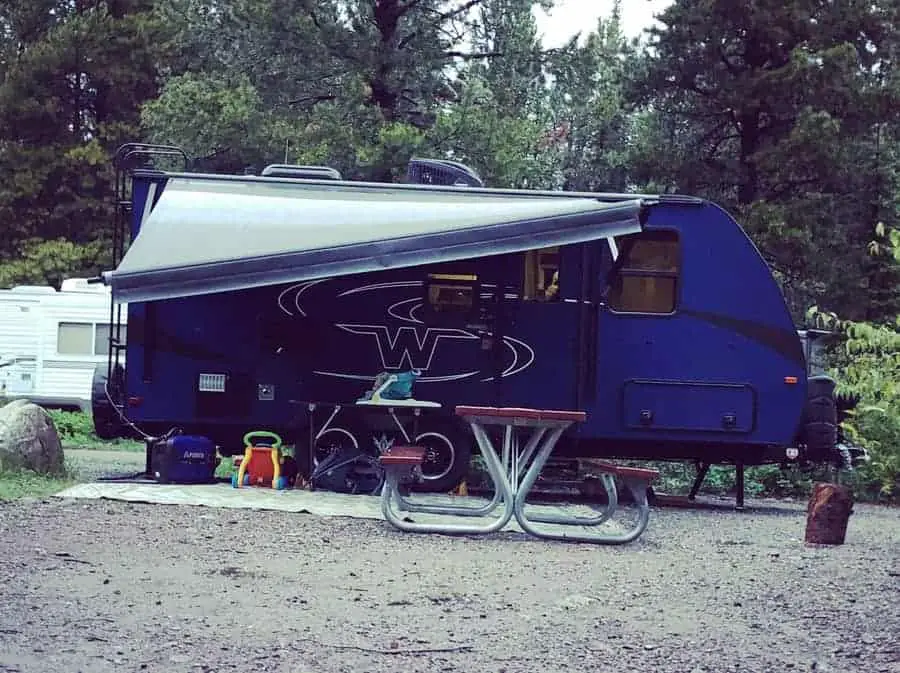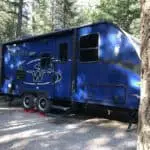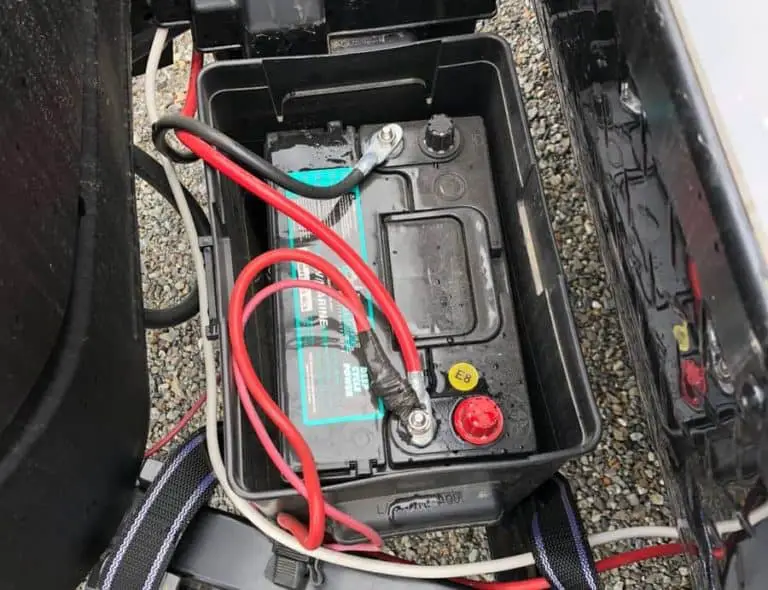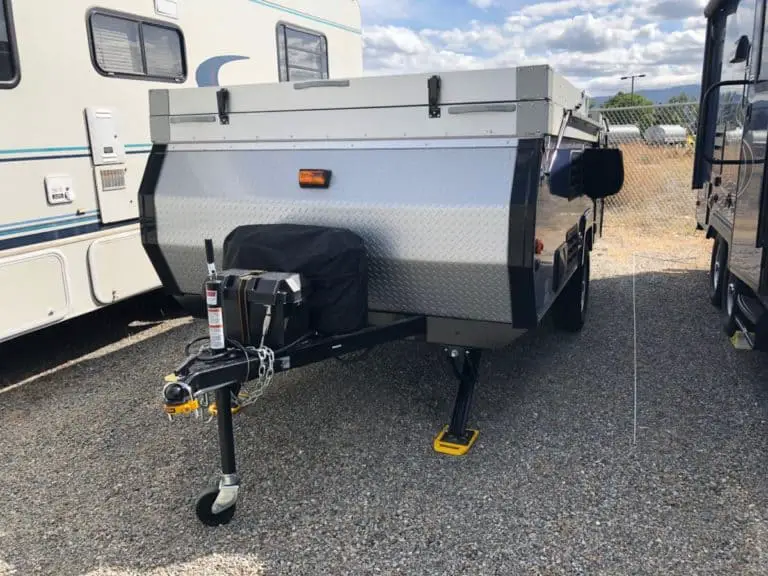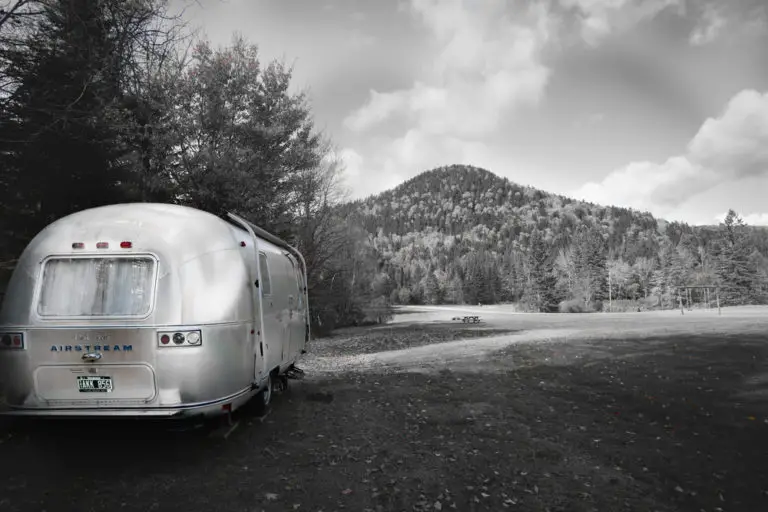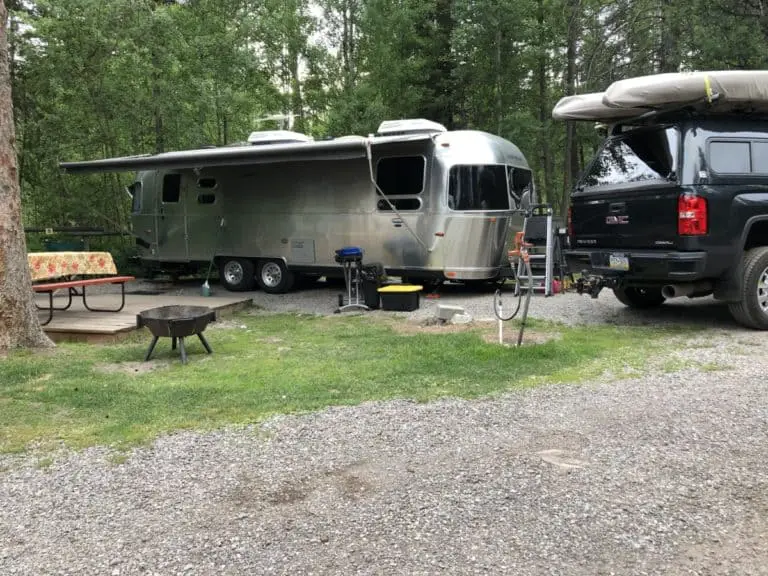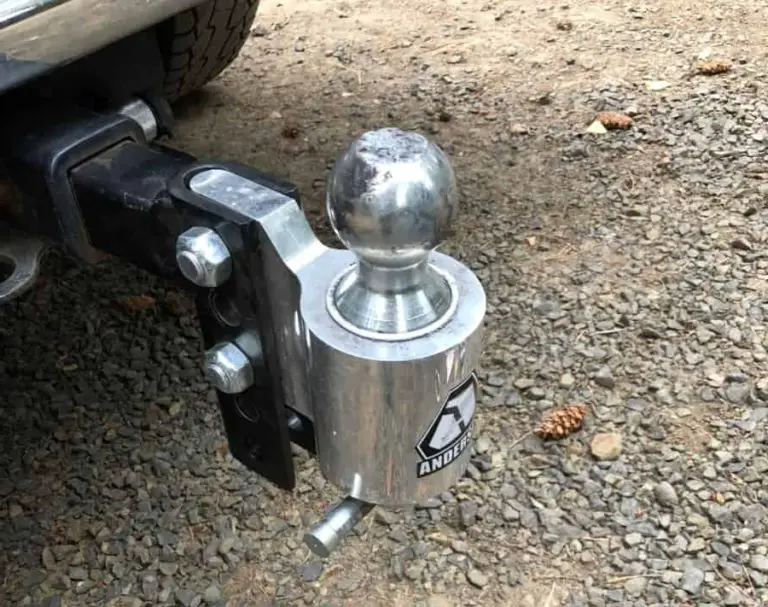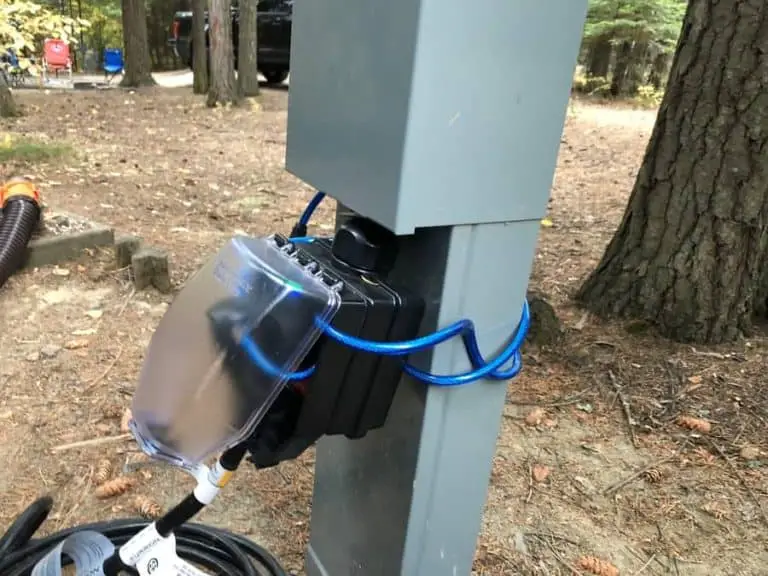Can a travel trailer tip over? Plus tips in case of an accident
When you purchased your travel trailer, you probably focused on the exciting adventures to come with this vehicle. It’s essential, however, to be prepared for the unexpected. All vehicle owners should know what to do in the event of an accident. Due to their weight and size, there are some unique situations to consider when traveling with a trailer. Many travel trailer owners wonder if their vehicle runs the risk of tipping over.
Can a travel trailer tip over?
Unfortunately, the answer is yes, travel trailers of all sizes can tip over. Weather, fishtailing, going too fast, or stopping too abruptly can all lead to your trailer tipping over if you are not careful. It is important to know the risks, the ways you can avoid them, and what to do in the unlikely event that your travel trailer tips over.
Let’s take a look at the reasons a travel trailer might tip over, how to avoid these situations, and what you can do if it does happen. Some of these situations may seem like common knowledge, while others may surprise you. After learning the proper steps to take, you will feel more prepared for handling this situation with as much ease as possible.
Why do travel trailers tip over?
Travel trailers usually tip over due to their large size and weight in combination with external factors such as weather or sway. There are several other reasons your travel trailer can tip over. Here are a few of the most common causes of this type of accident. Knowing the causes can help you steer clear of danger and keep you and your travel partners safe on the road.
Fishtailing or trailer sway: Fishtailing happens when your trailer moves separately from your towing vehicle. Instead of following steadily behind your towing vehicle, the camper will begin moving side to side. This can occur due to uneven weight distribution or issues with the trailer hitch. Due to the weight of a trailer, this can be extremely dangerous if not corrected. Making sure weight distribution is spread evenly throughout your camper will help avoid this issue.
Traveling too fast around a sharp corner: If you try to turn around a sharp corner going too fast, your trailer can easily tip over. This is a big reason why many places have designated RV speed limits. A heavier weight means gravity has a stronger impact, so be sure to take corners as slowly and steadily as possible.
Quick stopping: Another maneuver that can lead to tipping over is coming to a quick stop. The weight of your trailer means that both your towing vehicle and the trailer itself must roll to a complete stop, so you need to anticipate stops well in advance and approach them slowly. A quick stop can throw off the weight distribution and cause tipping in extreme circumstances.
Blowout: Tire blowouts can lead to tipping as well. If you are on the road and hear your tire pop, you may be inclined to brake quickly. However, this can result in losing a large amount of rubber on your tire, causing your trailer to lean. If you do this, your trailer will pull to the side with the blowout. Although it’s rare, if this force is strong enough, it could result in tipping.
Ice patch: Icy roads are a weather-induced risk that can lead to tipping over. Black ice is dangerous for obvious reasons, but if you slide on a patch while towing a travel trailer, the weight of your vehicle, in combination with this event, can have dangerous consequences. Traction and weight distribution can suffer, and the vehicle may end up tipping over.
Wind: Wind is another weather element that can cause your trailer to tip. This is rare because the winds need to be quite strong to cause your trailer to tip. If winds are blowing over 55 miles per hour, you should avoid traveling with your camper.
What should you do if your RV tips?
If your travel trailer does tip over, it is crucial to know the right steps to take to stay safe and minimize any damage. Follow these steps to ensure the situation runs as smoothly as possible.
Get everyone out of the vehicle to safety: This should be the first step that pops into your mind. Forget everything else for now, and make sure everyone is safely outside of the vehicle as soon after the incident as possible.
Make sure propane is off if it is safe: Once everyone is out of the vehicle, turn your propane tank off if it is not already. This is an important step for avoiding leaks and potential fires that could increase the damage to your vehicle.
Call 911: Now that you’ve covered the most important steps, call 911 immediately. Just like any other vehicle accident, you’ll need to let the police know where you are, and any other details about the accident. Find a safe place to wait until they arrive.
Get medical attention if needed: Mention any necessary medical attention on your 911 call. While you wait for the response team, use your first aid kit or any other useful emergency equipment to treat and bandage injured areas to the best of your ability. Even if you don’t have any visible injuries, you may want to go to the hospital to get checked just in case.
Document the accident with photos and video: Once everyone is safe and attended to and help is on the way, take thorough photographs and videos of the situation. This will be useful later for insurance purposes.
Call your insurance company: Once you’ve completed all the previous steps, you’ll need to call your insurance company and let them know about the crash. This is when your photos and videos will come in handy to help you explain the details of the incident. Also, find out what towing coverage or trip coverage you may have.
Get your RV towed: Now that everyone is safe and you have notified the necessary entities, you will need to get your RV towed. In some cases, the RV may be in a ditch or complicated area for retrieval, so it may take a bit of time for a crew to get the trailer in a towable position. Once the trailer is upright and back on the road, the tow crew will be able to take it to a mechanic or designated repair location.
How to avoid tipping over in your travel trailer
Now that we’ve covered the causes of tipping over, and the steps to take in this unlikely event, let’s go over ways to prevent this situation from happening in the first place.
Watch speed around corners: As mentioned, excessive acceleration around tight corners can lead to tipping over. Keep this in mind, and take corners as slowly and steadily as possible.
Have a properly installed sway control hitch: Making sure your hitch is properly installed is the best way to prevent sway or fishtailing. Issues with this mechanism cause the trailer to move independently from the tow vehicle, so ensuring proper installation can prevent serious accidents such as tipping.
Don’t overload the rear of the trailer: When weight is improperly distributed throughout the trailer, sway is much more likely. Make sure weight distribution is even throughout the trailer and not all stored in one area.
Make sure slide outs are locked in place: It is always important to make sure your slide-outs are securely in place before driving with your trailer in tow. Issues with slide-outs can impact weight distribution and inevitably cause sway or tipping.
Don’t drive in large wind gust areas: In case of strong winds, especially winds over 55 miles per hour, avoid driving at all costs. If possible, do not drive until wind speed has dropped, and it is safe to tow your trailer.
Slow down when an oncoming vehicle is a large semi: Passing big rigs such as large semis can hit your trailer with a quick gust of wind. This will also lead to sway, so decreasing your speed when passing trucks will help avoid any issues.
Can a large gust of wind tip a camper over?
If you are inside your vehicle on a windy day, you can feel the force a strong gust can have. Wind tipping a travel trailer over is a rare occurrence, but if winds are above 55 miles per hour and reach hurricane force, your trailer is at risk of tipping over.
How to prepare for heavy winds in your travel trailer?
Knowing the damage wind can cause, it’s good to be prepared for particularly windy weather. Here are a few tips for avoiding damage or accidents when you travel through strong winds.
Don’t park under trees: If winds are strong, your trailer is not the only thing at risk of tipping over. Trees can lose branches or fall as well, resulting in damage to your trailer if it is parked nearby.
Point vehicle in the direction of the wind: If your vehicle is parked in the direction the wind is facing, it will be more streamlined, and therefore less likely to rock from side to side or be impacted by strong gusts.
Put down stabilizer jacks: Stabilizer jacks are mechanisms you use to limit the movement of your vehicle. Using these can help ensure that your trailer stays stable in the event of strong winds.
Put awning and slides in: Awnings and slides are made of thin material and more susceptible to damage caused by the wind. Pull them in to avoid rips, tears, or other wind-related damage to these elements of your trailer.
Hitch up to your vehicle: Hitching up to your vehicle will add weight to your rig and anchor it down a bit more. This will help limit the amount of impact the wind has on your trailer.
Park on the lower side of a hill or building: Parking at the base of a hill or behind a building will limit the amount of wind that hits your trailer. The hill or building will act as a barrier between the wind and your travel trailer, helping to avoid any wind-related issues.
Conclusion
You can never be too prepared when traveling with a travel trailer. Since these vehicles run the risk of tipping over in certain circumstances, it is essential to be aware of the causes, steps to take, and ways to avoid this situation. Since you know that uneven weight distribution, improper hitch installation, and weather-related issues are among the most common causes of tipping, you should aim to avoid these factors if at all possible. Once you’ve done your research and taken the proper steps to avoid tipping, you can get back to focusing on the excitement of your next adventure!
Be the first to be notified about FREE tips, hints, coupon codes, and email-exclusive information. All for FREE!

